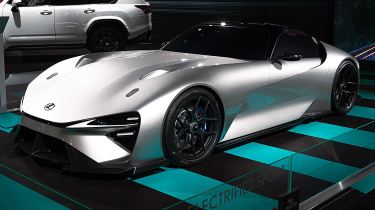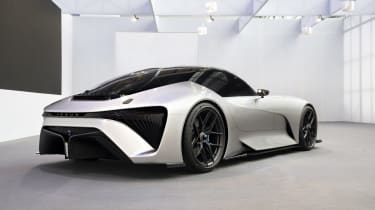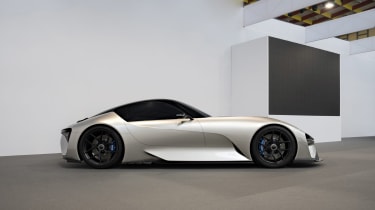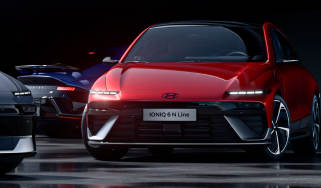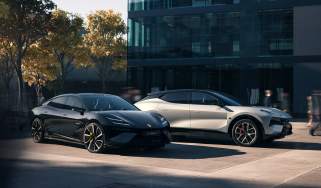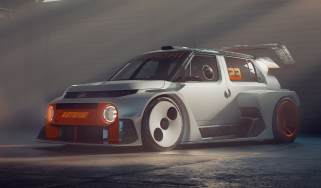Lexus Electrified Sport concept confirmed to enter production
Toyota will hand the baton of high performance EV development to Lexus with halo supercar to top range
Lexus has confirmed that the Electrified Sport concept will enter production in the next few years, joining the range as a low-production LFA-like successor on a bespoke platform. The new supercar will act as a halo product for the premium Japanese brand as it takes the lead on Toyota’s high performance electric car development.
The new long-bonnet supercar won’t share its architecture with any existing Toyota or Lexus models – just like the previous LFA – but will include a twin-motor setup and clever steer-by-wire system that utilises an aeroplane-like ‘yolk’ rather than a steering wheel. Unlike the yolk made so controversial by Tesla, the steer-by-wire system will have a completely variable steering ratio that eliminates the need for hand-over-hand steering inputs, while also allowing engineers to dramatically vary its feel, feedback and response.
Yet the Electrified Sport’s development won’t be centred on having a thousand horsepower powertrain, instead it’ll take a more innovative approach by integrating a variety of technologies Lexus is currently in development of to attempt to make its electric cars more engaging to drive.
Much like how the LFA pushed combustion engine technology to the absolute limit, this new Lexus sports car will form a test bed for innovations in all aspects of high performance electric car hardware, and the new software to augment it.
The Lexus Electrified Sport concept initially made its public debut at the SEMA show in early 2022 before appearing on the usual summer circuit of events like the Goodwood Festival of Speed, offering a first glimpse at the figurehead for the firm's ambitious electrification program.
Lexus Electrified Sport also previews the next-generation design language that will feature in these new models, confirming that despite an electric powertrain, the coupe will share its classic sports car proportions of a long bonnet and cab-rear layout with the LFA.
This halo sports car will headline the plan for a total adoption of battery electric technology across the Lexus line-up in European, Chinese and American markets by 2030, eventually phasing out combustion models globally by 2035.
Earlier this year, Lexus also revealed design studies for a larger SUV and a range of midsize models that look equivalent to the current IS in saloon, estate, shooting brake and convertible forms. Each features a distinctive new take on the Lexus design language, including a new inverted spindle grille not dissimilar in execution to Audi’s inverted grille design motif. Each of these models will come on stream later on.
> Lexus LC500 Convertible 2022 review – a glamorous alternative to a 911 Cabriolet
Toyota president Akio Toyoda has confirmed that, until the technology has matured enough to be used in a production vehicle, this new sports car will utilise lithium-ion battery tech, targeting an acceleration time to 62mph in the low-2sec zone along with a range of 434 miles.

